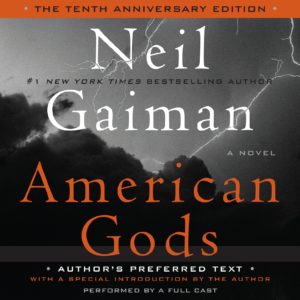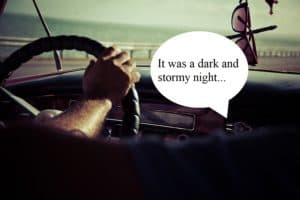 As the year draws to its close, the “Best Books of 2021” lists have been released: The New York Times’ 10 Best Books and 100 Notable Books; NPR’s Books We Love (rebranded from its erstwhile title of “Book Concierge”); Times’ 100 Must-Read Books. These lists are full of worthy, compelling, interesting reads–that will likely have long hold lists in our system. While you’re waiting for some of the big-name titles from 2021 to come in, here are a few suggestions for great books that flew under the radar this year.
As the year draws to its close, the “Best Books of 2021” lists have been released: The New York Times’ 10 Best Books and 100 Notable Books; NPR’s Books We Love (rebranded from its erstwhile title of “Book Concierge”); Times’ 100 Must-Read Books. These lists are full of worthy, compelling, interesting reads–that will likely have long hold lists in our system. While you’re waiting for some of the big-name titles from 2021 to come in, here are a few suggestions for great books that flew under the radar this year.
For fiction lovers of realistic stories, Infinite Country by Patricia Engel weaves a generational tale out of five different voices within a Columbian family in pursuit of safety and opportunity. Elena, Mauro, and their first child manage to leave Bogotá for America; but even as their family grows and they settle into their new life, the precariousness of their undocumented status comes to a head when Mauro is deported. In this same category but quite different in scope, there is also Nona Fernández’s The Twilight Zone, a novel that opens in 1980s Chile during Pinochet’s dictatorship, when secret service agent Andrés Antonio Valenzuela Morales walks into a dissident magazine’s offices to confess his many state-supported crimes. What follows is a taut story about complicity, resistance, history, and the contradictions of a reality in which horrifying political machinations exist side-by-side with the banality of everyday routine. (This book is especially recommended for fans of gritty spy novels. Finally, for a more modern but no less important story, We Are Watching Eliza Bright by A.E. Osworth focuses on the eponymous Eliza Bright: the only female coder at a gaming company to have reached elite status. After she files a sexual harassment report, the company brushes her off; when she takes her story to the press, the company fires her, and she finds herself engulfed in public controversy. Some people rally to her side, while others threaten, harass, and dox her. The subsequent escalation examines obsession, questions the line between real life and internet life, and explores the manifestations of male and female rage.
For those looking for something slightly less literal, Alex McElroy’s The Atmospherians may be just the ticket. Once-beloved social media darling Sasha Marcus has been canceled, and in her search for a job, she reconnects with an old childhood friend. He makes her the face of his new business: “The Atmosphere,” billed as a career workshop for men, but actually designed as a rigorous program to heal them of toxic masculinity. Billed as “the Fight Club for the millennial generation,” the novel is a satirical take on social media and influencers, wellness culture, and self-mythologization. Along similar lines, another novel that uses satire as a framework is Nightbitch by Rachel Yoder. An unnamed, stay-at-home mother lives with her 2-year old son in increasing frustration and isolation from her always-traveling, always-working husband–until, one night, she finds that she is (literally) transforming. The metaphor of body horror and transformation functions as a way to make sense of the bizarre new state of motherhood; but lest you be put off by the premise, reviewers have described it as “joyfully subversive.”
The past year in publishing has also turned out a rich crop of excellent non-fiction reads, for those in the mood for essays, memoirs, or otherwise factually-based accounts. If you’re in the mood for slightly lighter fare, Kate Lebo’s The Book of Difficult Fruit: Arguments for the Tart, Tender, and Unruly (With Recipes) is a wide ranging, genre-bending memoir/cookbook that includes 26 essays and accompanying recipes–one for every letter of the alphabet. Alternatively, if culinary musings aren’t your thing, you might enjoy Pop Song: Adventures in Art and Intimacy by Larissa Pham, another series of essays that center on the topics of love and intimacy, heartache and cultural connection, and–of course–art.
History buffs might be interested to check out Sarah Schulman’s Let the Record Show: A Political History of ACT UP New York, 1987-1993, which has been described as the most comprehensive political history account yet written about ACT UP and other American AIDS activists. (While you’re at it, season 3 of Pose is finally out, if you’re the type to combine historical writing with fictional media counterparts.) Readers with a more modern socio-political interest might prefer to pick up White Magic: Essays by Elissa Washuta, writing that spans everything from land and colonization to pop culture phenomenon Twin Peaks to video games to witchcraft and tarot; or Anjali Enjeti’s Southbound: Essays on Identity, Inheritance, and Social Change, a memoir about the process of self-discovery and activism around her identity as a mixed-race woman in the Deep South.
These suggestions barely scratch the surface of all the great books that were released in 2021, of course; if you’re looking for additional recommendations for books you might have missed this past year, give us a call or send us an email. We’re always happy to connect readers to books and vice versa.
Have a safe and happy New Year, and we’ll see you in 2022!
Hilary Umbreit (they/them) is the Adult Services Librarian at the Morrill Memorial Library in Norwood, MA. Look for their article in the December 30, 2021 issue of the Transcript and Bulletin.



